Faculty
Faculty
-
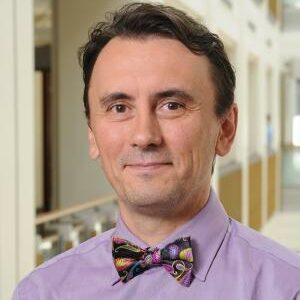
Dan Nicolae
Elaine M. and Samuel D. Kersten, Jr. Distinguished Service Professor; Faculty Co-Director, Data Science Institute and Committee on Data Science; Professor of Statistics, Human Genetics, Medicine, Section of Genetic Medicine and the College -

Michael J Franklin
Morton D. Hull Distinguished Service Professor; Faculty Co-Director, Data Science Institute and Committee on Data Science; Senior Advisor to the Provost for Computation and Data Science -
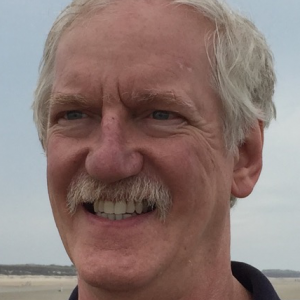
Luc Anselin
Stein-Freiler Distinguished Service Professor of Sociology and the College; Director, Center for Spatial Data Science -
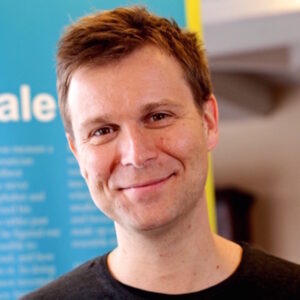
Luís M. A. Bettencourt
Professor, Department of Ecology and Evolution; Associate Faculty, Department of Sociology -
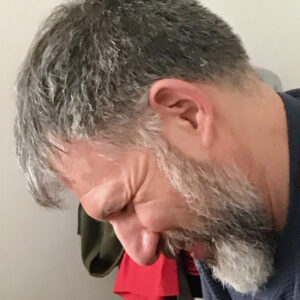
David Biron
Director of Undergraduate Data Science; Assistant Senior Instructional Professor -
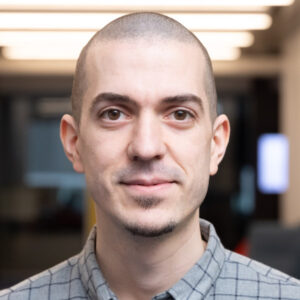
Raul Castro Fernandez
Assistant Professor, Computer Science -
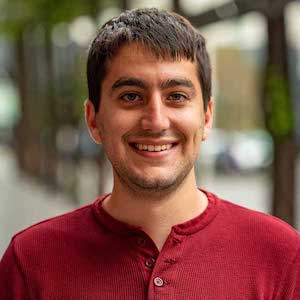
Aloni Cohen
Assistant Professor of Computer Science and Data Science -
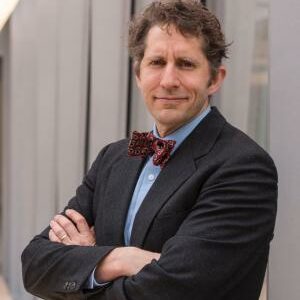
James Evans
Max Palevsky Professor of Sociology; Director, Knowledge Lab -
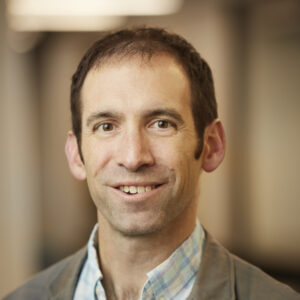
Nick Feamster
Faculty Director of Research, Data Science Institute; Neubauer Professor of Computer Science and The College -

Greg Green
Associate Senior Instructional Professor; Director of MS in Applied Data Science Program; Senior Director of Industrial Partnerships and Strategy -

Robert Grossman
Frederick H. Rawson Distinguished Service Professor in Medicine and Computer Science; Jim and Karen Frank Director of the Center for Translational Data Science; Chief, Section of Biomedical Data Science, Dept. of Medicine -
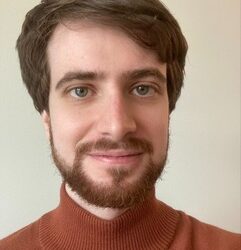
Ari Holtzman
Assistant Professor of Computer Science and Data Science -
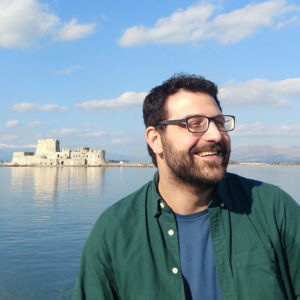
Nikos Ignatiadis
Assistant Professor of Statistics and Data Science -
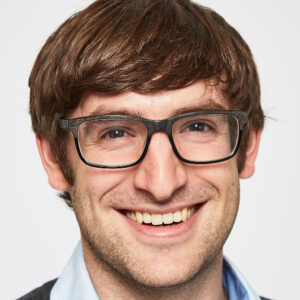
Alex Kale
Assistant Professor of Computer Science and Data Science -
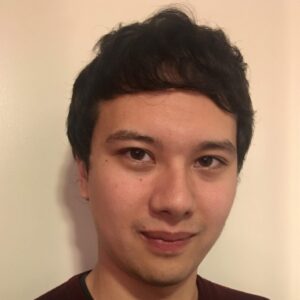
Frederic Koehler
Assistant Professor of Statistics and Data Science -
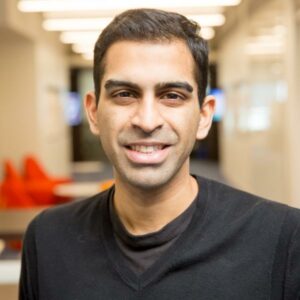
Sanjay Krishnan
Assistant Professor, Computer Science -
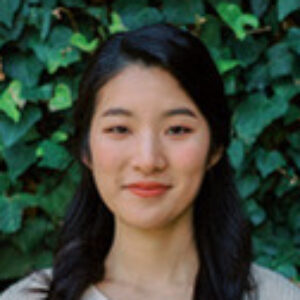
Mina Lee
Assistant Professor of Computer Science and Data Science -
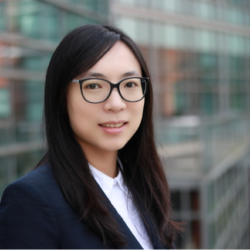
Bo Li
Associate Professor of Computer Science and Data Science -
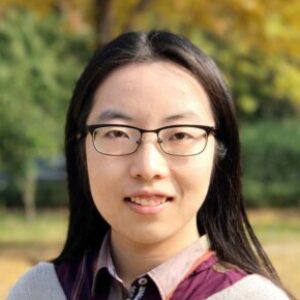
Tian Li
Assistant Professor of Computer Science and Data Science -
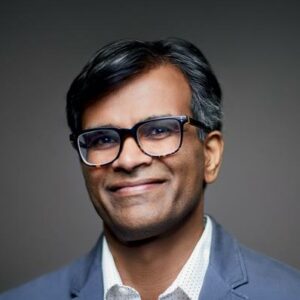
Sendhil Mullainathan
Roman Family University Professor of Computation and Behavioral Science, Chicago Booth -
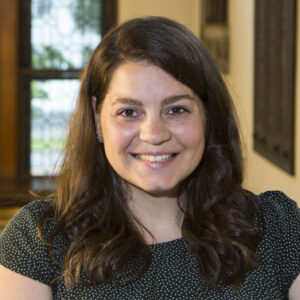
Amy Nussbaum
Assistant Instructional Professor -
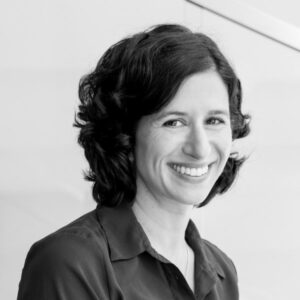
Samantha Riesenfeld
Assistant Professor of Molecular Engineering and Medicine -
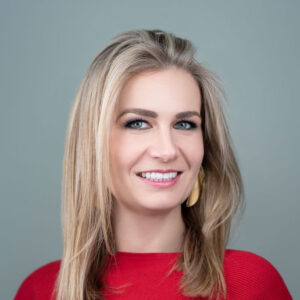
Veronika Rockova
Professor of Econometrics and Statistics at the Booth School of Business -
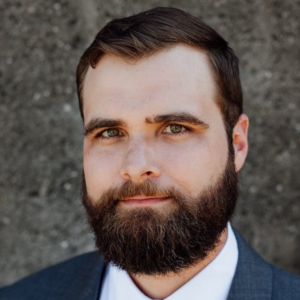
Nick Ross
Data Science Clinic Director, Data Science Institute; Associate Senior Instructional Professor -
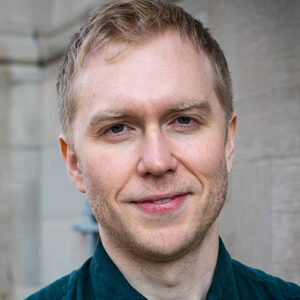
Aaron Schein
Assistant Professor of Statistics and Data Science -
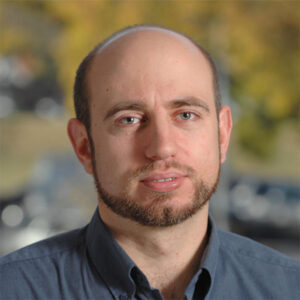
Nathan Srebro
Professor, Toyota Technological Institute at Chicago; Professor, Department of Computer Science -
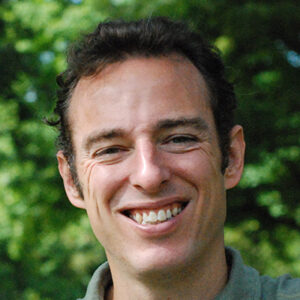
Matthew Stephens
Chair, Department of Statistics; Ralph W. Gerard Professor of Statistics, Human Genetics, and the College -
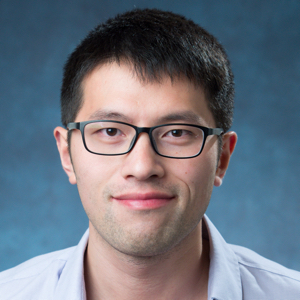
Chenhao Tan
Assistant Professor of Computer Science and Data Science -
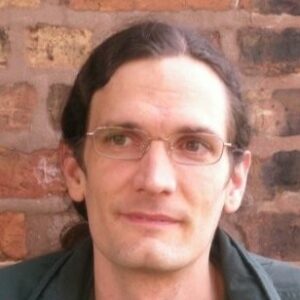
Will Trimble
Assistant Instructional Professor -

David Uminsky
Executive Director, Data Science Institute; Senior Research Associate, Department of Computer Science -
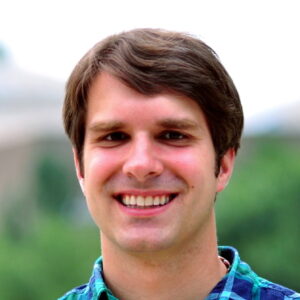
Blase Ur
Neubauer Family Assistant Professor of Computer Science -

Victor Veitch
Assistant Professor of Statistics and Data Science -
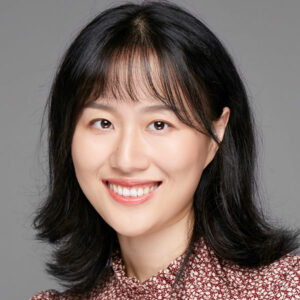
Jingshu Wang
Assistant Professor, Department of Statistics and the College -
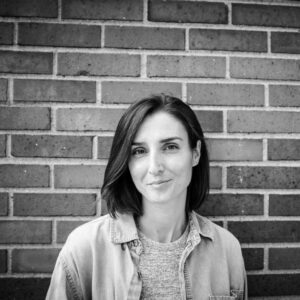
Molly Offer-Westort
Assistant Professor, Department of Political Science -
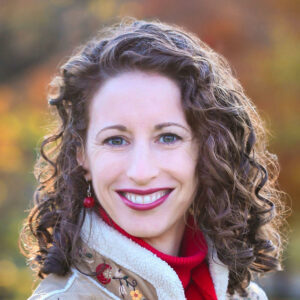
Rebecca Willett
Faculty Director of AI, Data Science Institute; Professor, Statistics, Computer Science, and the College -
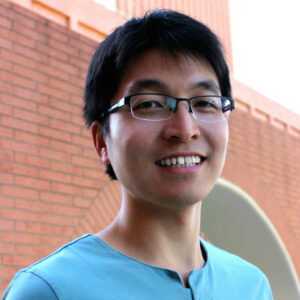
Haifeng Xu
Assistant Professor of Computer Science and Data Science -
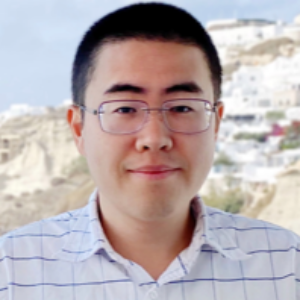
Ce Zhang
Associate Professor of Computer Science and Data Science
Dan Nicolae obtained his Ph.D. in statistics from The University of Chicago and has been a faculty at the same institution since 1999, with appointments in Statistics (since 1999) and Medicine (since 2006). His research focus is on developing statistical and computational methods for understanding the human genetic variation and its influence on the risk for complex traits, with an emphasis on asthma related phenotypes. The current focus in his statistical genetics research is centered on data integration and system-level approaches using large datasets that include clinical and environmental data as well as various genetics/genomics data types: DNA variation, gene expression (RNA-seq), methylation and microbiome.
Michael J. Franklin is the Morton D. Hull Distinguished Service Professor for the Department of Computer Science. He held the inaugural title of Liew Family Chair of Computer Science until September of 2023. An authority on databases, data analytics, data management and distributed systems, he also serves as senior advisor to the provost on computation and data science.
Previously, Franklin was the Thomas M. Siebel Professor of Computer Science and chair of the Computer Science Division of the Department of Electrical Engineering and Computer Sciences at the University of California, Berkeley. There, he co-founded Berkeley’s Algorithms, Machines and People Laboratory (AMPLab), a leading academic big data analytics research center. The AMPLab won a National Science Foundation CISE “Expeditions in Computing” award, which was announced as part of the White House Big Data Research initiative in March 2012, and received support from over 30 industrial sponsors. AMPLab created industry-changing open source Big Data software including Apache Spark and BDAS, the Berkeley Data Analytics Stack. At Berkeley, he also served as an executive committee member for the Berkeley Institute for Data Science, a campus-wide initiative to advance data science environments.
An energetic entrepreneur in addition to his academic work, Franklin founded and became chief technology officer of Truviso, a data analytics company acquired by Cisco Systems. He serves on the technical advisory boards of various data-driven technology companies and organizations.
Franklin is a Fellow of the Association for Computing Machinery and a two-time recipient of the ACM SIGMOD (Special Interest Group on Management of Data) “Test of Time” award. His many other honors include the outstanding advisor award from Berkeley’s Computer Science Graduate Student Association. He received the Ph.D. in Computer Science from the University of Wisconsin in 1993, a Master of Software Engineering from the Wang Institute of Graduate Studies in 1986, and the B.S. in Computer and Information Science from the University of Massachusetts in 1983.
Professor Anselin is the developer of the SpaceStat and GeoDa software packages for spatial data analysis. His publications include many hundreds of articles and several edited books in the fields of quantitative geography, regional science, geographic information science, econometrics, economics, and computer science.
Read more about Professor Anselin here.
Luís M. A. Bettencourt is the Pritzker Director of the Mansueto Institute for Urban Innovation and Professor of Ecology and Evolution at the University of Chicago, as well as an External Professor of Complex Systems at the Santa Fe Institute. He was trained as a theoretical physicist and obtained his undergraduate degree from Instituto Superior Técnico (Lisbon, Portugal) in 1992, and his PhD from Imperial College (University of London, UK) in 1996 for research in statistical and high-energy physics models of the early Universe. He has held postdoctoral positions at the University of Heidelberg (Germany), Los Alamos National Laboratory (Director’s Fellow and Slansky Fellow) and at MIT (Center for Theoretical Physics). He has worked extensively on complex systems theory and on cities and urbanization, in particular. His research emphasizes the creation of new interdisciplinary synthesis to describe cities in quantitative and predictive ways, informed by classical theory from various disciplines and the growing availability of empirical data worldwide. He is the author of over 100 scientific papers and several edited books. His research has been featured in leading media venues, such as the New York Times, Nature, Wired, New Scientist, and the Smithsonian.
In my research, I ask what is “the value of data” and explore the potential of data markets to unlock that value. My group collaborates with economists, legal scholars, statisticians, and domain scientists. We build systems to share, discover, prepare, integrate, and process data. I have traditionally worked on distributed query processing systems and continue to do so. I have received a SIGMOD’23 Test-of-time-Award for my PhD work.
Aloni Cohen is an Assistant Professor of Computer Science and Data Science at the University of Chicago. Previously, Cohen was a Postdoctoral Associate at Boston University, with a joint appointment at the Hariri Institute for Computing and the School of Law. His research explores the interplay between theoretical cryptography, privacy, law, and policy. Aloni earned his PhD in electrical engineering and computer science at MIT where he was advised by Shafi Goldwasser and supported by a Facebook Fellowship and an NSF Graduate Student Fellowship. Aloni is a former affiliate at the Berkman Klein Center for Internet & Society and a Fellow at the Aspen Tech Policy Hub.
My research explores the interplay between theoretical cryptography, privacy, law, and policy. Specifically, I aim to understand and resolve the tensions between the theory of cryptography and the privacy and surveillance law that governs its eventual real-world context. Right now, I’m thinking about differential privacy, GDPR, the Fifth Amendment, encryption, multiparty computation, and the Census.
My research focuses on the collective system of thinking and knowing, ranging from the distribution of attention and intuition, the origin of ideas and shared habits of reasoning to processes of agreement (and dispute), accumulation of certainty (and doubt), and the texture—novelty, ambiguity, topology—of understanding. I am especially interested in innovation—how new ideas and practices emerge—and the role that social and technical institutions (e.g., the Internet, markets, collaborations) play in collective cognition and discovery. Much of my work has focused on areas of modern science and technology, but I am also interested in other domains of knowledge—news, law, religion, gossip, hunches, machine and historical modes of thinking and knowing. I support the creation of novel observatories for human understanding and action through crowd sourcing, information extraction from text and images, and the use of distributed sensors (e.g., RFID tags, cell phones). I use machine learning, generative modeling, social and semantic network representations to explore knowledge processes, scale up interpretive and field-methods, and create alternatives to current discovery regimes.
My research has been supported by the National Science Foundation, the National Institutes of Health, the Air Force office of Science Research, and many philanthropic sources, and has been published in Nature, Science, Proceedings of the National Academy of Science, American Journal of Sociology, American Sociological Review, Social Studies of Science, Research Policy, Critical Theory, Administrative Science Quarterly, and other outlets. My work has been featured in the Economist, Atlantic Monthly, Wired, NPR, BBC, El País, CNN, Le Monde, and many other outlets.
At Chicago, I am Director of Knowledge Lab, which has collaborative, granting and employment opportunities, as well as ongoing seminars. I also founded and now direct on the Computational Social Science program at Chicago, and sponsor an associated Computational Social Science workshop. I teach courses in augmented intelligence, the history of modern science, science studies, computational content analysis, and Internet and Society. Before Chicago, I received my doctorate in sociology from Stanford University, served as a research associate in the Negotiation, Organizations, and Markets group at Harvard Business School, started a private high school focused on project-based arts education, and completed a B. A. in Anthropology at Brigham Young University.
Nick Feamster is Neubauer Professor in the Department of Computer Science and the College and the Faculty Director of Research for the Data Science Institute. He researches computer networking and networked systems, with a particular interest in Internet censorship, privacy, and the Internet of Things. His work on experimental networked systems and security aims to make networks easier to manage, more secure, and more available.
Greg Green is Senior Instructional Professor and Director of the MS in Applied Data Science Program at the University of Chicago, and Senior Director for Industrial Partnerships and Strategy at the Data Science Institute. Dr. Green helps the University of Chicago professional data science students learn to apply data science to solve complex industry problems with greater impact.
Dr. Green is reshaping the content and approaches used to educate the next generation of professional data scientists at the University of Chicago. Additionally, Greg is designing new, creative offerings more deeply connected to MS and PhD research programs in Data Science, Computer Science, Statistics, and Financial Mathematics. New course offerings developed launched since joining the University of Chicago include an innovative approach to “Leadership in Data Science and Artificial Intelligence”, “Consulting in Data Science” and “Your Career in Data Science”.
Throughout his professional career, Greg has used his expertise in digital strategies, business analytics, and new product development to drive rapid revenue growth and accelerate business transformation. His previous work bringing innovation to an academic environment included authoring a Marketing Analytics course, designing a pre-requisite applied statistics course and serving as a lecturer for Marketing Analytics at Northwestern University.
Greg’s industry roles include Chief Analytics Officer at Harland Clarke Holdings, Director at Google, EVP/Managing Director at Publicis Groupe, and Analytics Practice Lead at PwC. Greg’s patented cloud-based media analytics platform was highlighted in Harvard Business Review and Fast Company.
Greg holds a Doctor of Philosophy in Mathematics from Claremont Graduate School and a Master of Science in Statistics from Michigan State University. Born in Owosso, Michigan, Greg is married to Jill, an artist, and their adult children include two more artists, a teacher, and an engineer. Greg and his family enjoy snowboarding, snow/water skiing and live theatre—as well as good food and friendships. Their passion for the environment is reflected in a love for Lake Michigan where they like to spend as much of the summer as possible.
I am the Frederick H. Rawson Distinguished Service Professor of Medicine and Computer Science and the Jim and Karen Frank Director of the Center for Translational Data Science (CTDS) at the University of Chicago.
I am the Chief of the Section of Biomedical Data Science in the Department of Medicine at the University of Chicago.
I am the Chair of the not-for-profit Open Commons Consortium, which develops and operates clouds to support research in science, medicine, health care, and the environment. I am also a Partner of Analytic Strategy Partners LLC.
Ari is an incoming Assistant Professor of Computer Science and Data Science, starting July 2024.
His research has focused broadly on generative models of text: how we can use them and how can we understand them better. His research interests have spanned everything from dialogue, including winning the first Amazon Alexa Prize in 2017, to fundamental research on text generation, such as proposing Nucleus Sampling, a decoding algorithm used broadly in deployed systems such as the OpenAI API. With the new wave of powerful generative models being continually released, Ari has argued for using the lens of Complex Systems to understand generative models of human media, suggesting that a lack of precise behavioral vocabulary to describe what language models are doing is the bottleneck to explaining how language models are capable of such impressive performance on a range of tasks. He completed his PhD in Computer Science at the University of Washington studying “Interpretation Errors” in how we understand generative models after an interdisciplinary degree at NYU combining Computer Science and the Philosophy of Language.
I am an assistant professor of Statistics and Data Science at the University of Chicago. Previously, I was a postdoctoral research scientist in the Department of Statistics at Columbia University. I received my Ph.D. in Stanford’s Statistics department in the summer of 2022, and my thesis was recognized with the Jerome H. Friedman dissertation award. Before that, I received degrees in Mathematics (B.Sc.), Molecular Biotechnology (B.Sc.), and Scientific Computing (M.Sc.) at the University of Heidelberg in Germany, where I was a researcher at the European Molecular Biology Laboratory.
As a statistician with formal training in mathematics, molecular biology, and computation, I seek to develop practical and theoretically justified statistical methods, accompanied by robust software implementations, for the analysis of datasets generated from modern technologies. My research is inspired by new modeling and inference opportunities made possible through the wealth of modern data. My methodological interests encompass empirical Bayes analysis, causal inference, multiple testing, and statistics in the presence of contextual side-information.
Alex Kale is an Assistant Professor in Computer Science and the Data Science Institute at the University of Chicago. Previously, he earned his PhD at the University of Washington where he worked with Jessica Hullman. Alex leads the Data Cognition Lab, focused on creating data visualization and analysis software that explicitly represents the user’s cognitive processes.
Alex creates and evaluates tools for helping people think with data, specializing in data visualization and reasoning with uncertainty. He publishes in top human-computer interaction and data visualization venues such as ACM CHI and IEEE VIS, where his work has won Best Paper and Honorable Mention Awards. Alex’s work addresses gaps in dominant theories and models of what makes visualization effective for inferences and decision making.
Frederic Koehler is an incoming Assistant Professor of Statistics and Data Science in January 2024.
Frederic is currently at Stanford University as a Motwani Postdoctoral Fellow. Prior, he was a research fellow in UC Berkeley’s Simons Institute in the Program on Computational Complexity of Statistical Inference. He received his PHD in Mathematics and Statistics from MIT, where he was coadvised by Ankur Moitra and Elchanan Mossel. Before that, he received his undergraduate degree in Mathematics at Princeton University.
His current research interests include computational learning theory and related topics: probability theory, high-dimensional statistics, optimization, related aspects of statistical physics, etc. In particular, he is very interested in learning and inference in graphical models.
Sanjay Krishnan is an Assistant Professor of Computer Science. His research group studies the theory and practice of building decision systems that are robust to corrupted, missing, or otherwise uncertain data. His research brings together ideas from statistics/machine learning and database systems. His research group is currently studying systems that can analyze large amounts of video, certifiable accuracy guarantees in partially complete databases, and theoretical lower-bounds for lossy compression in relational databases.
Mina Lee is an incoming Assistant Professor of Computer Science and Data Science for the Summer of 2024.
Her research goal is to design and evaluate language models to enhance our productivity and creativity and understand how these models change the way we write. She has built various writing assistants, including an autocomplete system, a contextual thesaurus system, and a creative story-writing system. In addition, she has developed a new framework to evaluate language models based on their ability to interact with humans and augment human capabilities. She was named one of MIT Technology Review’s Korean Innovators under 35 in 2022, and her work has been published in top-tier venues in natural language processing (e.g., ACL and NAACL), machine learning (e.g., NeurIPS), and human-computer interaction (e.g., CHI). Her recent work on human-AI collaborative writing received an Honorable Mention Award at CHI 2022 and was featured in various media outlets, including The Economist. Mina received her PhD from Stanford University in 2023.
Bo is an Associate Professor in the Computer Science Department and Data Science Institute at UChicago.
Bo’s research addresses trustworthy machine learning from both theoretical and practical aspects and aims to enable reliable machine learning algorithms and systems in the real world, such as safe autonomous vehicles and federated (distributed) learning. She focuses on three interconnected aspects: robustness, privacy, generalization, and their underlying connections.
Bo received her Ph.D. in Computer Science from Vanderbilt University in 2016. She was a Postdoctoral Researcher at UC Berkeley 2017-2018 (working with Prof. Dawn Song) and joined the faculty at UIUC in 2018.
She been recognized by a long list of notable awards and fellowships for young faculty. She is a Sloan Fellow, MIT Technology Review TR-35 innovator, and recipient of the IJCAI Computers and Thought Award, NSF CAREER, Intel Rising Star Faculty award, Symantec Research Labs Fellowship, Rising Stars in EECS, Research Awards from Amazon/Facebook/Google, and best paper awards at multiple top machine learning and security conferences. Her research has been featured by major publications and media outlets such as Nature, Wired, New York Times, Fortune, and is on display at the Science Museum in London.
Tian Li is an Assistant Professor of Computer Science and Data Science starting in July 2024. Her research interests are in distributed optimization, large-scale machine learning, federated learning, and data-intensive systems. Prior to CMU, she received her undergraduate degrees in Computer Science and Economics from Peking University. She was a research intern at Google Research in 2022. She received the Best Paper Award at ICLR Workshop on Security and Safety in Machine Learning Systems (2021), was selected as Rising Stars in Machine Learning (2021), and was invited to participate in EECS Rising Stars Workshop (2022).
Sendhil Mullainathan is the Roman Family University Professor of Computation and Behavioral Science at Chicago Booth. His latest research is on computational medicine—applying machine learning and other data science tools to produce biomedical insights. In past work he has combined insights from behavioral science with empirical methods—experiments, causal inference tools, and machine learning—to study social problems such as discrimination and poverty. He currently teaches a course on Artificial Intelligence. Outside of research, he co-founded a non-profit to apply behavioral science (ideas42), a center to promote the use of randomized control trials in development (the Abdul Latif Jameel Poverty Action Lab), has worked in government in various roles, and currently serves on the board of the MacArthur Foundation board. He is also a regular contributor to the New York Times.
Amy Nussbaum joined the University of Chicago in Fall 2022. She holds a PhD in Statistical Sciences from Southern Methodist University, where she researched latent variables—those that cannot be measured directly, like happiness or stress. Specifically, she studies the assessment of personality traits. Most recently, she held the position of Visiting Lecturer of Statistics at Mount Holyoke College.
In addition to academia and research, she encourages understanding the use of statistics in government and industry. After graduation, she served as the inaugural Science Policy Fellow at the American Statistical Association, working to promote the practice and profession of statistics by advocating for evidence-based policy making and the federal statistical agencies, as well the lead statistician for a medical device company developing a novel imager able to detect diseased human tissue using artificial intelligence.
Samantha Riesenfeld is Assistant Professor in the UChicago Pritzker School of Molecular Engineering, with additional affiliations in the Department of Medicine, Section of Genetic Medicine, the Institute for Biophysical Dynamics, the Comprehensive Cancer Center, and the Committee on Immunology, where she co-chairs the Computational and Systems Immunology track of the PhD training program. She leads a highly interdisciplinary research group that develops and applies machine learning methods to use functional genomics, including single-cell transcriptomics, and multimodal data to investigate complex biological systems. Areas of focus include inflammatory immune responses, neuroimmune interactions, and solid tumor cancers. Dr. Riesenfeld has a BA in mathematics and computer science from Harvard University and a PhD in theoretical computer science from UC Berkeley. She did postdoctoral training at the interface of machine learning, systems biology, and immunology at the Broad Institute of MIT and Harvard, Brigham and Women’s Hospital, and the Gladstone Institutes at UCSF. Her honors include a PhRMA Foundation Post Doctoral Fellowship, an NIH F32 NRSA postdoctoral fellowship, a BroadIgnite postdoctoral award, and a Cancer Research Foundation Young Investigator Award.
Veronika Rockova is a Professor of Econometrics and Statistics and the James S. Kemper Faculty Scholar at the Booth School of Business at the University of Chicago. She joined Booth after completing her postdoctoral training in statistics at the Wharton School of the University of Pennsylvania. She teaches a course on Big Data at Booth. Her research interests lie at the intersection of statistics and machine learning, with a primary focus on creating innovative decision-centric tools for extracting insights from extensive datasets. She specializes in Bayesian computation, high-dimensional decision theory, and hierarchical modeling. Her applied areas of interest include healthcare analytics and computational medicine. Her research was acknowledged with the National Science Foundation CAREER Award in 2020 and the COPPS Emerging Leader Award in 2023. She currently serves as an associate editor for the Annals of Statistics, Journal of the American Statistical Association, and Journal of the Royal Statistical Society. Beyond her academic pursuits, Veronika is an avid pianist, tennis enthusiast, and golf neophyte.
Dr. Ross is an experienced data science executive and academic leader who specializes in leveraging business, engineering, and data to optimize decision-making. His various roles have ranged from architecting and designing production ML/AI systems, to hiring, growing, and leading engineering and data science teams.
Previously, Dr. Ross led the data science and backend engineering efforts at The Meta, an esports training platform used by millions of competitive gamers. Before joining The Meta, Dr. Ross was a Professor of Data Science at the University of San Francisco, where his research focused on how to effectively use data and data science techniques to answer business questions. During this time, he was also the Assistant Director of the University of San Francisco’s Data Institute, where he led and developed academic-industry partnerships to create a world-class masters of data science program. Under his leadership, the Data Institute placed hundreds of students into top data science positions in both the private and public sectors, with a job placement rate of over 90% within 3 months of graduation. As a consultant, he spearheaded data efforts at leading tech companies in the video and online game industry, from early-stage startups to multinational companies.
Dr. Ross received his PhD from UCLA, his Masters from UC Davis, and his Bachelor of Science from UC Berkeley. He has published papers in a variety of journals as well as given talks in both academic and industry settings.
Aaron is an Assistant Professor in the Statistics Department and Data Science Institute at UChicago. His research develops methodology in Bayesian statistics, causal inference, and machine learning for applied problems in political science, economics, and genetics, among other fields. Prior to joining UChicago, Aaron was a postdoctoral fellow in the Data Science Institute at Columbia University. He received his PhD in Computer Science from UMass Amherst, as well as an MA in Linguistics and a BA in Political Science.
Dr. Srebro is interested in statistical and computational aspects of machine learning, and the interaction between them. He has done theoretical work in statistical learning theory and in algorithms, devised novel learning models and optimization techniques, and has worked on applications in computational biology, text analysis and collaborative filtering. Before coming to TTIC, Dr. Srebro was a postdoctoral fellow at the University of Toronto and a visiting scientist at IBM Research.
My lab works on a wide variety of problems at the interface of Statistics and Genetics. We often tackle problems where novel statistical methods are required, or can learn something new compared with existing approaches. Thus, much of our research involves developing new statistical methodology, many of which have a non-trivial computational component. And because data sets are getting larger and larger our work often involves modern methods for “high-dimensional statistics”. Our work often makes extensive use of Bayesian hierarchical models to borrow information across data sets or sampling units.
Recently my lab has been increasingly focussed on making its research more open, reproducible and extensible. This is because I see this as the first step towards greater cooperation of scientists to achieve common goals.
See http://github.com/stephenslab/ash for an example of a recent project I conducted “in the open”. And see https://jdblischak.github.io/workflowr/ for an R package we have developed to help students and others make research websites of their analyses. In learning to do research this way, my lab uses git for version control, github for sharing code, and knitr and RStudio for helping make our R analyses clear and share-able.
Current research interests include:
- Sparsity, shrinkage, and false discovery rates, particularly for complex inter-related datasets.
- Factor Analysis, dimension reduction, and estimation of large covariance matrices.
- Clustering methods, and generalizations (eg grade of membership)
- Applications of multi-scale and wavelet methods to genomic data
- Reproducible research and open science
Chenhao Tan is an assistant professor at the Department of Computer Science and the UChicago Data Science Institute. His main research interests include language and social dynamics, human-centered machine learning, and multi-community engagement. He is also broadly interested in computational social science, natural language processing, and artificial intelligence.
David Uminsky joined the University of Chicago in September 2020 as a senior research associate and Executive Director of Data Science. He was previously an associate professor of Mathematics and Executive Director of the Data Institute at University of San Francisco (USF). His research interests are in machine learning, signal processing, pattern formation, and dynamical systems. David is an associate editor of the Harvard Data Science Review. He was selected in 2015 by the National Academy of Sciences as a Kavli Frontiers of Science Fellow. He is also the founding Director of the BS in Data Science at USF and served as Director of the MS in Data Science program from 2014-2019. During the summer of 2018, David served as the Director of Research for the Mathematical Science Research Institute Undergrad Program on the topic of Mathematical Data Science.
Before joining USF he was a combined NSF and UC President’s Fellow at UCLA, where he was awarded the Chancellor’s Award for outstanding postdoctoral research. He holds a Ph.D. in Mathematics from Boston University and a BS in Mathematics from Harvey Mudd College.
Blase Ur is an assistant professor of computer science at the University of Chicago. He founded the UChicago SUPERgroup, an interdisciplinary research collective whose research spans computer security, privacy, ethical AI, and human-computer interaction (HCI). The SUPERgroup is especially interested in developing data-driven methods and tools that support users’ security and privacy decisions, as well as their interactions with complex computer systems. The group’s work has been supported by nine National Science Foundation grants, as well as grants from Mozilla Research, Meta, Google, and the Data Transparency Lab.
Blase (whose name is pronounced “blaze”; he/him pronouns) has received the Quantrell Award for Undergraduate Teaching (2021), NSF CAREER Award (2021), SIGCHI Outstanding Dissertation Award (2018), and a Fulbright Scholarship (2010). His work has received four best/distinguished paper awards, as well as five honorable mentions for best paper. He earned a PhD in 2016 from Carnegie Mellon University’s Societal Computing program, where he was advised by Lorrie Cranor, and an AB in computer science from Harvard University in 2007. He is also a musician, photographer, (theatre) designer, and avid bicyclist.
I am an assistant professor of Statistics and Data Science at the University of Chicago and a research scientist at Google Cambridge. My recent work revolves around the intersection of machine learning and causal inference, as well as the design and evaluation of safe and credible AI systems. Other noteable areas of interests include network data, and the foundations of learning and statistical inference.
I was previously a Distinguished Postdoctoral Researcher in the department of statistics at Columbia University, where I worked with the groups of David Blei and Peter Orbanz. I completed my Ph.D. in statistics at the University of Toronto, where I was advised by Daniel Roy. In a previous life, I worked on quantum computing at the University of Waterloo. I won a number of awards, including the Pierre Robillard award for best statistics thesis in Canada.
My main research interest is in developing statistical methods for cutting-edge bio-technologies and genetic problems. I currently work on problems in single-cell omics, Mendelian Randomization and structural variation in the 3D genome. My research also includes developing general statistical methodology in causal inference and hypotheses testing that arise from new challenges in genetics and public health.
Molly Offer-Westort works on quantitative methodology for social science research, with a focus on causal inference and experimental design. Offer-Westort’s PhD is joint in Political Science and Statistics & Data Science, conferred by Yale University in 2019; Offer-Westort also holds a Masters in Statistics, also from Yale, and a Masters in Public Affairs, from the Princeton School of Public and International Affairs.
At Yale, Offer-Westort worked in collaborative research labs with Peter Aronow, Gregory Huber, and Forrest Crawford. In the summer of 2018, she interned with Facebook’s Core Data Science team.
Rebecca Willett is a Professor of Statistics and Computer Science at the University of Chicago. She completed her PhD in Electrical and Computer Engineering at Rice University in 2005 and was an Assistant then tenured Associate Professor of Electrical and Computer Engineering at Duke University from 2005 to 2013. She was an Associate Professor of Electrical and Computer Engineering, Harvey D. Spangler Faculty Scholar, and Fellow of the Wisconsin Institutes for Discovery at the University of Wisconsin-Madison from 2013 to 2018. Prof. Willett received the National Science Foundation CAREER Award in 2007, was a member of the DARPA Computer Science Study Group 2007-2011, and received an Air Force Office of Scientific Research Young Investigator Program award in 2010. Prof. Willett has also held visiting researcher positions at the Institute for Pure and Applied Mathematics at UCLA in 2004, the University of Wisconsin-Madison 2003-2005, the French National Institute for Research in Computer Science and Control (INRIA) in 2003, and the Applied Science Research and Development Laboratory at GE Medical Systems (now GE Healthcare) in 2002. Her research interests include network and imaging science with applications in medical imaging, wireless sensor networks, astronomy, and social networks. She is also an instructor for FEMMES (Females Excelling More in Math Engineering and Science; news article here) and a local exhibit leader for Sally Ride Festivals. She was a recipient of the National Science Foundation Graduate Research Fellowship, the Rice University Presidential Scholarship, the Society of Women Engineers Caterpillar Scholarship, and the Angier B. Duke Memorial Scholarship.
Haifeng Xu is an assistant professor in the Department of Computer Science and the Data Science Institute at UChicago. He directs the Strategic IntelliGence for Machine Agents (SIGMA) research lab which focuses on designing algorithms/systems that can effectively elicit, process and exploit information, particularly in strategic environments. Haifeng has published more than 55 publications at leading venues on computational economics, machine learning and theoretical computer science, such as EC, ICML, NeurIPS, STOC and SODA. His research has been recognized by multiple awards, including the Google Faculty Research Award, ACM SIGecom Dissertation Award (honorable mention), IFAAMAS Victor Lesser Distinguished Dissertation Award (runner-up), Google PhD fellowship, and multiple best paper awards.
The following research themes are the recent focus of our research lab. Please refer to our lab’s website for more details.
- The economics of data/information, including selling, acquiring, and exploiting information
- Machine learning in multi-agent setups under information asymmetry, incentive conflicts, and deception
- Resource allocation in adversarial domains, with applications to security and privacy protection
Ce Zhang is an incoming Associate Professor of Computer Science and Data Science for the Summer of 2024.
He is currently an Associate Professor of Computer Science at ETH Zurich. Before joining the department he will spend his time as the CTO of Together, building a decentralized cloud for artificial intelligence. His research looks at the fundamental tension between data, model, computation and infrastructure, with the final goal of democratizing machine learning and artificial intelligence. His current research focuses on building next-generation machine learning platforms and systems that are data-centric, human-centric, and declaratively scalable.
Before joining ETH, Ce finished his PhD at the University of Wisconsin-Madison and spent another year as a postdoctoral researcher at Stanford, both advised by Christopher Ré. His work has received recognitions such as the SIGMOD Best Paper Award, SIGMOD Research Highlight Award, Google Focused Research Award, an ERC grant, and has been featured and reported by Science, Nature, the Communications of the ACM, and various media outlets such as Atlantic, WIRED, Quanta Magazine, etc. He also currently serves as the co-Editors-in-Chief of DMLR, a new member of the JMLR family focusing on data-centric machine learning research.